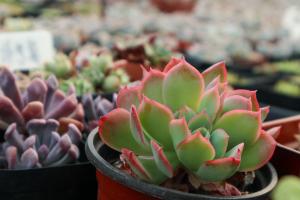How to Overwinter Potted Plants Outside
If you live in a place with cold winters, you may be wondering how to keep your potted plants alive throughout the season. Overwintering plants outside can be challenging, but with the right preparation and care, your plants can thrive and come back strong in the spring. Here are some tips for overwintering potted plants outside:
Choose the Right Plants
Not all plants can survive a cold winter outside in a pot. Before selecting your plants, research which options are best suited for your climate. Some common plants that can survive a winter outside include evergreens, boxwoods, hollies, and hardy herbs like rosemary and thyme. Plants that are not suited for cold weather should be brought inside or covered with blankets to protect them.
Repot Your Plants
Plants that are overwintering outside should be repotted in larger containers before the cold weather arrives. This will give the plants more room for their root systems to grow and provide extra insulation from the cold. Make sure to use a high-quality potting mix to help retain moisture and provide nutrients to the plants.
Water Your Plants Adequately
During the winter months, it can be difficult to balance the amount of water your potted plants need. Overwatering can cause root rot, while underwatering can cause the plants to dry out and die. The best way to water your plants during this time is to allow the soil to dry out slightly between watering. This will prevent overwatering while still providing the necessary moisture to the plants.
Protect Your Plants from the Elements
Extreme cold and wind can damage your plants, so it's important to protect them from these elements. Group your plants together to provide extra insulation, and cover them with blankets or burlap to protect them from the wind. You can also place straw or mulch around the base of the plant to help insulate the roots.
Monitor Your Plants Throughout the Winter
Check on your plants regularly throughout the winter to make sure they are receiving the proper care. Look for signs of wilting, disease, or insect infestations. If you notice any issues, address them immediately to prevent further damage. Additionally, continue to monitor the soil moisture and adjust your watering schedule as needed.
Conclusion
Overwintering potted plants outside can be a challenging but rewarding experience. By selecting the right plants, repotting them in larger containers, providing adequate water, protecting them from the elements, and monitoring them throughout the winter months, your plants can survive and come back strong in the spring.

 how many times do yo...
how many times do yo... how many planted tre...
how many planted tre... how many pine trees ...
how many pine trees ... how many pecan trees...
how many pecan trees... how many plants comp...
how many plants comp... how many plants can ...
how many plants can ... how many plants and ...
how many plants and ... how many pepper plan...
how many pepper plan...






























